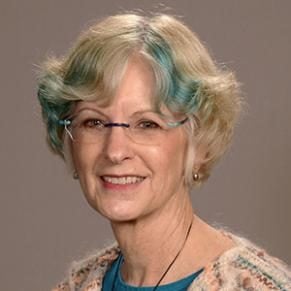The Coordination and Translation Center (CTC), based at George Mason University, is responsible for managing logistics, engagement with practitioners and other key stakeholders in the justice and behavioral health fields, and for the dissemination of products and key research findings. The CTC is also conducting research to identify effective dissemination strategies to efficiently reach criminal justice stakeholders and to provide funding for rapid turnaround of innovative pilot studies. The CTC has an educational component where members of the Network provide outreach and mentorship to researchers and practitioners to increase capacity within the justice system.
The CTC consists of six cores:
CTC Leaders

Faye S. Taxman
PhD, George Mason University

Todd Molfenter
PhD, University of Wisconsin–Madison

Judith Wilde
PhD, George Mason University

Danielle Rudes
PhD, Sam Houston State University

Jessica Hulsey Nickel
Addiction Policy Forum

Braeden Kelly
Addiction Policy Forum

Stephanie Jensen
George Mason University

Carrie Pettus
PhD, Wellbeing and Excellence Innovations (WEI)

Jason Lutjen
Slonky, LLC

TaLisa Carter
PhD, American University

Amy Murphy
George Mason University
Administrative Core
The CTC’s Administrative (Admin) Core provides overall internal and external communications infrastructure and logistical support for the JCOIN network. The Admin Core promotes collaboration among grantees and stakeholders, provides timely updates to internal and external stakeholders on promising interventions and approaches to improve the capacity of the justice system, and monitors progress across studies within the network, in collaboration with the Methodology and Advanced Analytics Resource Center (MAARC).
Core Leads
- Faye S. Taxman, PhD, George Mason University
- Jessica Hulsey Nickel, Addiction Policy Forum
- Amy Murphy, MPP, George Mason University
- Danielle Rudes, PhD, Sam Houston State University
Capacity Building Core
The Capacity Building Core develops and delivers educational curricula and trainings to expand the network of scholars and clinicians with the skills and knowledge required to conduct rigorous, ethical research and improve health outcomes in justice settings. Activities include research education, mentoring, networking, and resources for the following groups: scientists and researchers; justice, treatment, and health practitioners; journalists; and community members.
Core Leads
- Danielle Rudes, PhD, Sam Houston State University
- TaLisa Carter, PhD, American University
- Carrie Pettus, PhD, Wellbeing and Excellence Innovations (WEI)
Technical Assistance Core
The Technical Assistance Core provides technical assistance to community-based organizations and research-practitioner partnerships to improve the delivery of services to justice-involved individuals. The Core also expands opportunities for community-based organizations to learn about core correctional practices, evidence-based practices and treatments, and substance use disorders.
Dissemination and Stakeholder Engagement Core
The goals of the Dissemination and Stakeholder Engagement (D/SE) Core are to engage criminal justice and healthcare practitioners and other key stakeholders in using JCOIN research results and other evidence-informed practices, and to provide researchers with practitioner input and feedback regarding priorities, feasibility, practical application, and impact of research. The D/SE Core facilitates bidirectional communication between practitioners and researchers by developing a national network of champions, creating audience-specific communications materials, and facilitating interactions between NIDA and justice and health practitioners to further disseminate effective interventions.
Core Leads
- Jessica Hulsey Nickel, Addiction Policy Forum
Implementation and Translational Research (I-Trans) Core
The Implementation and Translational Research (I/Trans) Core is responsible for translating scientific findings into widespread practice within justice and health settings. The effort examines communication strategies and approaches for effective dissemination and implementation of information. Team members work on such questions as, What makes a message effective? What materials will convey this information? What makes people receptive to using research findings in practice? What is an effective implementation strategy?
Core Leads
- Faye S. Taxman, PhD, George Mason University
- Todd Molfenter, PhD, University of Wisconsin–Madison
- Xiaoquan Zhao, PhD, George Mason University
Rapid Response and Pilot Research Core
The Rapid Response and Pilot Research Core facilitates the JCOIN Rapid Innovation Grants (J-RIG) Program. These small grants, awarded by the JCOIN CTC through a competitive application process, support research and pilot projects on emerging policies and practices. These grants are intended to improve the quality of OUD services for justice-involved populations, while building the research capacity of the field.
Core Leads
- Judith Wilde, PhD, George Mason University